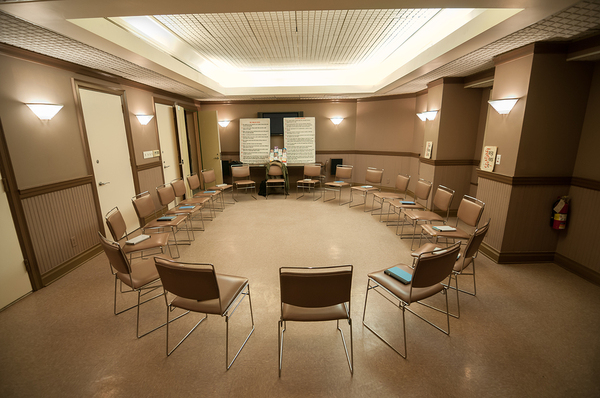No one wants to feel alone. Unfortunately, this feeling is a daily reality for many members of the LGBT community. And while acceptance is growing, LGBT individuals often end up feeling isolated and rejected—sometimes by the people they love and who love them most. Factor in the drug and alcohol abuse issue, and many LGBT addicts end up feeling hopeless and alone. However, it doesn’t have to be that way.
Here’s a closer look at why LGBT individuals’ treatment needs are different, along with why choosing a treatment center that addresses the differences between LGBT and heterosexual addiction may be the key to recovery.

Substance abuse treatment is more successful with the right people sitting in these chairs.
Understanding LGBT Addiction
A growing body of research attests to the problem of addiction within the LGBT community. While there are no hard figures, data from the Substance Abuse and Mental Health Services Administration (SAMHSA) suggests that rates of substance abuse among LGBT people may be as high as 30 percent—significantly more than the nine percent rate of substance abuse among the general population.
According to experts, this difference is attributable to a number of different factors, including chronic stress associated with social prejudice and discrimination; a healthcare system that fails to meet the basic needs of gay and transgender people; and marketing efforts that associate the concept of “safe spaces” with bars and clubs where alcohol and tobacco use is rampant.
An underlying issue contributing to the problem? Lack of awareness. Concludes Social Work Today of the issue,
“In a time when members of the LGBT community are focusing on rights, equality, and marriage, other concerns may fall by the wayside, including this population’s health and mental health needs. Substance use and abuse is one area that needs more attention.”
Which brings us to the first thing all LGBT addicts need: understanding—not only from loved ones, but also from society at large. The longer the problem is swept under the rug, the more LGBT people will unnecessarily suffer from their addictions.
Treating LGBT Addicts
Social Work Today further reveals that LGBT people may be unlikely to seek substance abuse treatment because they’ve had bad experiences in the past with healthcare providers. While this can be a huge impediment to recovery, there’s a solution for this problem, as well: targeting treatment programs to specifically address LGBT needs, which then have the potential to generate positive word of mouth about these services.
All addicts aren’t created equally, but some have more in common with each other than others. LGBT addicts fall into this category. Not convinced? Consider studies showing that LGBT youths with addictions who attend treatment programs specifically geared toward the LGBT population have better outcomes. As Jeremy Goldbach, Ph.D., LMSW, an assistant professor at the University of Southern California School of Social Work, told Social Work Today,
“Prevention programs work, but they only really work if the kid feels it’s culturally relevant and it matches them. When we do tailor an intervention, where kids see people and things in those programs that are similar to them, they’re more engaged, and the engagement leads to more skills development, which leads to less drug use.”

When it comes to LGBT addicts, understanding is a huge part of overcoming.
The same concept applies to LGBT adults living with addiction. Ultimately, successful treatment is as much about the approach as it is about the treatment. An approach that acknowledges the specific challenges faced by LGBT individuals in a culturally sensitive way is the one most likely to facilitate recovery.
At the end of the day, LGBT people need the same things everyone needs: They need to feel understood, and they need to feel safe. However, the route to feeling this way may be a less-traveled path, and substance abuse treatment programs that fail to acknowledge this reality may have the potential to fall short.
We’re Here to Help
Contact us at Harris House today to learn more about how our culturally sensitive treatment programs can help LGBT individuals overcome their addictions and lead full, healthy lives.







